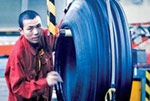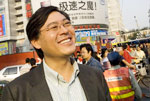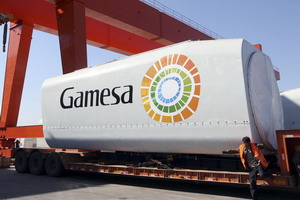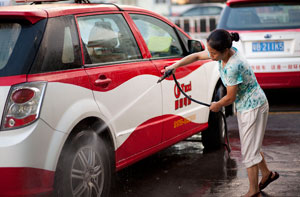Late to the party but happy to play catch-up
Updated: 2011-09-08 10:09
By Zhou Yan (China Daily)
|
|||||||||||
On Nov 16, 2006, more than half a year after Utt took over the company, KBR started its public trading as a separate company on the New York Stock Exchange, with an IPO price of $17 a share. The price rose more than 22 percent on the first trading day.
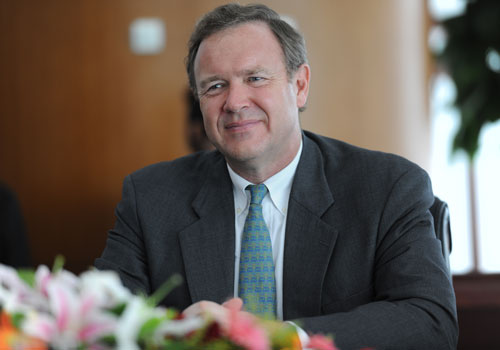 |
|
William Utt, president and CEO of KBR Inc. [Photo/China Daily] |
KBR was finally spun off by Halliburton, a leading US oil field service provider, in April 2007.
The restructuring proved to be a big drag on the company's pace of development in China.
"It took a lot of time. We got the company set up as a separate public company. We got our team organization in place," Utt recalled. "It took us several years to get to that point."
Led by Utt, KBR's revenue in 2010 rose to $10.1 billion, compared with $8.8 billion in 2006, when much of it was still being generated from Iraq-related contracts. The company now has about 35,000 employees across more than 45 countries and regions.
For Utt, the biggest achievement he has made at KBR was to make a company comprised of two business units into one with 13 different business units today. That has given the company the ability to weather difficult times by leveraging different divisions.
"So as long as we are able to keep leaders in our business units who can maintain what I value as differential competitive advantage, KBR will be able to execute through organizational design," he said.
Explaining why KBR focuses on technology in China, Utt admitted it is because the company did not have an established engineering presence to compete with the established engineering design institutions in China. Instead, the company has intellectual property that can allow it to penetrate the Chinese market and establish its presence through technology supply and licensing.
As time goes by, KBR will use technology as a platform to enable it to launch a broader series of services in China.
"It's a very strategic move for the company to get into using technology in our way in China. We believe that was the best entry point for KBR," Utt said.
Major rival Honeywell International Inc moved all its four business units to China with all the divisions' Asia-Pacific headquarters also relocated there.
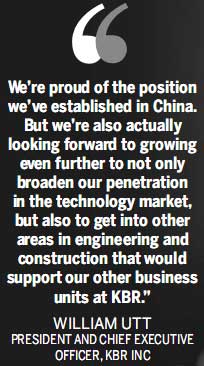 |
"We're here, we 're a little late, but watch out because we're going to be very aggressive and catching up," Utt said. "Dramatically, we're hoping to continue to increase our share of the market in technology, but also develop other opportunities we see in China," he said.
On KBR's blueprint for China, in the near term, are plans to conduct project delivery of offshore oil and gas platforms. Gradually, it will look at opportunities with liquefied natural gas or the downstream refining business.
"We have the ability to broaden our procurement opportunities in China to buy more Chinese equipment that we think is going to be very competitive on the global market," Utt said, adding that that is the company's major expectation in its three-year plan starting this year.
Utt described his Chinese staff as "young, energetic, and optimistic", capable of making all KBR's aggressive ambitions come true.
In this regard, in spite of his busy schedule for a less-than-three-day visit to China, Utt also squeezed in time to talk with his Chinese staff before he left Beijing to "stir their imagination" on how they can take the company to the next level within the Chinese market
"My talk involved sharing with our Chinese staff all the great things that are going on in KBR outside China, trying to build their enthusiasm and, hopefully, give them a broader view of what they can do," Utt said.
"It's part of my culture and what I can bring to KBR. The best thing I can do is to give employees the resources they need to do their work today. I'm anxious to be helpful where I can be to our team and help facilitate in their minds that there are no boundaries in KBR."
When it comes to the selection criteria for his management team, Utt is very strict. "We look for those who can conform with our values," he said.
The four values of KBR that Utt considers vital are transparency, accountability, discipline and financial responsibility.
"It's part of my DNA," said Utt, who considers himself very transparent, responsible and accountable. He said those values helped him develop from an engineer into an executive.
"The emergence of the Chinese market in the last decade has been inspiring to see. We'd like to figure out how we can not only participate in the market to a greater extent, but also how we can take advantage of the great human resources we find in China," Utt said.
"We have a lot of optimism about our ability to participate in China. We're starting to see how we can play better in China at KBR."






